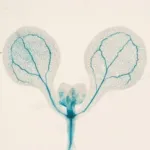(Press-News.org) HOUSTON – (March 28, 2025) – A new study published in the journal Immunity reveals a mechanism that allows triple negative breast cancer (TNBC) to develop resistance to therapy. Researchers at Baylor College of Medicine showed that lipid accumulation in tumor cells and nearby immune cells promotes immune suppression, but disrupting lipid formulation reverses treatment resistance and the immunosuppressive microenvironment.
Standard-of-care treatment for TNBC includes chemotherapy and immunotherapy. However, some initially responsive tumors still develop recurrences. Researchers studied mouse models and found that TNBC cells that survived treatment accumulated lipid droplets containing Omega-6 fatty acids. Single-cell RNA sequencing revealed that neutrophils, a type of white blood cell, near the tumor cells also accumulated these lipids.
“We found the tumor cells give the lipid droplets to surrounding neutrophils. This shifted the function of the neutrophils from antitumor to tumor promotion,” said first author Dr. Liqun Yu, postdoctoral fellow in the Zhang lab at Baylor.
“The prevailing perspective in our field has focused on the role of fatty acid metabolism in regulating the immune response and therapeutic response. We found in this study that not only can fatty acids serve as an energy source, but they also are precursors of immunosuppressive signals the cancer cells can use to fight against our immune system,” said corresponding author Dr. Xiang H.-F. Zhang, director of the Lester and Sue Smith Breast Center and professor of molecular and cellular biology at Baylor.
Researchers found they could reverse therapy resistance and the immunosuppressive microenvironment by disrupting lipid droplet formation. Blocking dietary intake of Omega-6 fatty acids also resensitized the tumors to chemotherapy and immunotherapy treatments.
“We can advise patients to consume a diet low in Omega-6 fatty acids, which is not significantly different from the general advice to lower red meat, fat and sodium intake. We also are exploring therapeutic options to block fatty acid accumulation and immunosuppressive signals between the cancer cells and the neutrophils,” said Zhang, William T. Butler, M.D., Endowed Chair for Distinguished Faculty and co-leader of the Breast Cancer Program at the Dan L Duncan Comprehensive Cancer Center at Baylor.
Other contributors to this work include Keziah Liebenberg, Yichao Shen, Fengshuo Liu, Zhan Xu, Xiaoxin Hao, Ling Wu, Weijie Zhang, Hilda L. Chan, Bo Wei, Philip L. Lorenzi, Yang Gao, Igor Bado, Luis Becerra-Dominguez, Charlotte Helena Rivas, Sergio Aguirre, Bradley C. Pingel, Yi-Hsuan Wu, Yunfeng Ding, Jun Liu, David G. Edwards and Livia S. Eberlin.
This work is supported by the U.S. Department of Defense, National Cancer Institute, Breast Cancer Research Foundation, McNair Medical Institute, National Institutes of Health and Cancer Prevention and Research Institute of Texas. See the publication for a full list of funding.
# # #
END
Fatty acids promote immune suppression and therapy resistance in triple negative breast cancer
2025-03-28
ELSE PRESS RELEASES FROM THIS DATE:
Intermittent fasting increases sex drive in male mice: an approach for low libido in humans?
2025-03-28
Long-term fasting in 24-hour cycles increases the sex drive of male mice by lowering the concentration of the neurotransmitter serotonin in the brain. This effect is linked to a diet-induced deficiency of the precursor substance tryptophan – an amino acid that must be obtained through food. Researchers from DZNE report on this in the journal Cell Metabolism, together with a Chinese team from Qingdao University and the University of Health and Rehabilitation Sciences. They suggest that similar mechanisms may exist in humans and view fasting as a potential approach for treating unwanted loss of sexual desire.
Fasting ...
Scientists create protein ‘seeds’ that trigger key pathological features of ALS and frontotemporal dementia
2025-03-28
28 March 2024, Leuven, Belgium — Accumulation of a protein called TDP-43 is a key feature of ALS and frontotemporal dementia. In a newly published study, researchers report ‘seeding’ this accumulation through fragments of the culprit protein created in the lab. The findings provide further evidence for a prion-like paradigm wherein protein aggregation occurs in a templated fashion. This breakthrough provides the research field with a powerful way to model and study the mechanisms driving neurodegeneration.
TAR DNA-binding ...
Discrimination-related depression, anxiety pronounced among multiracial, White, Asian populations
2025-03-28
EMBARGOED UNTIL 11 a.m. EST on Friday, March 28, 2025
Contact:
Jillian McKoy, jpmckoy@bu.edu
Michael Saunders, msaunder@bu.edu
##
Discrimination-related Depression, Anxiety Pronounced Among Multiracial, White, Asian Populations
A new study found that more than half of US adults encounter some form of discrimination, and that this mistreatment may fuel higher chances of depression and/or anxiety among specific racial and ethnic groups due to cultural, social, and systemic factors.
A ...
New approach makes one type of clean fuel production 66% more efficient
2025-03-28
COLUMBUS, Ohio – Researchers have uncovered a more efficient way to turn carbon dioxide into methanol, a type of alcohol that can serve as a cleaner alternative fuel.
In the lab, synthesizing methanol can be extremely difficult, due to the extremely complex reaction pathway needed to select for it. Previous attempts by the same team to manufacture this valuable liquid fuel from carbon dioxide have used a combination of cobalt phthalocyanine (CoPc) molecules and electricity, but this method is inefficient as only about 30% of the carbon dioxide is converted to methanol.
To ...
AI meets oncology: New model personalizes bladder cancer treatment
2025-03-28
Leveraging the power of AI and machine learning technologies, researchers at Weill Cornell Medicine developed a more effective model for predicting how patients with muscle-invasive bladder cancer will respond to chemotherapy. The model harnesses whole-slide tumor imaging data and gene expression analyses in a way that outperforms previous models using a single data type.
The study, published March 22 in npj Digital Medicine, identifies key genes and tumor characteristics that may determine treatment success. The ability to accurately anticipate ...
New approach could treat anthrax beyond the “point of no return”
2025-03-28
Anthrax, an infectious disease caused by the bacterium Bacillus anthracis, is often treatable in its early stages. But once the disease has progressed beyond the “point of no return” after just a few days, patients are almost certainly doomed.
In a new Nature Microbiology study, University of Pittsburgh researchers show that a cocktail of growth factors reversed would-be lethal cell damage in mice with anthrax, suggesting that this approach could be adapted for use in patients beyond the brink.
“While only a few people die from anthrax in the United States each year, there is always the concern ...
Those constantly distracted by their phone will just find other ways to procrastinate if it isn’t nearby
2025-03-28
If you just put away your phone to read this, chances are you’re not alone. Our phones are an endless source of distraction, and we interact with them every four to six minutes. This is often driven by habit as well as notifications, leading to a disrupted flow of activity while we’re trying to be productive.
A new study published in Frontiers in Computer Science investigated if placing smartphones just out of our reach while we’re at work influenced device use for activities not related ...
Ottoman Empire’s religious ‘tolerance’ another form of control
2025-03-28
Population surveillance. The carrying of identification while traveling. Add to that the public presence of diverse religions and it sounds like 2025, but this was life in the Ottoman Empire 200 years ago. Yet this seeming tolerance of non-Muslim faiths was in fact tied to the first two aspects, according to research by Osaka Metropolitan University Associate Professor Masayuki Ueno.
The Ottoman Empire lasted from around 1300 until 1922, and at various points in its history ruled present-day Turkey, Egypt, Greece, Hungary, and beyond. In the wake of the 1821 Greek revolt, the Ottoman Empire instituted ...
Smartphone bans alone fail to equip children for healthy use of technology
2025-03-27
Banning smartphone and social media access alone fails to equip children for healthy use of technology, argues a group of international experts in The BMJ today.
They say the focus should shift to a rights based approach, underpinned by age appropriate design and education, that protects children from harm while developing skills to help them participate in a digital society.
Bans on smartphone and social media access have been advocated in many countries to protect children from harm despite ...
Discovery of novel small compounds that delay flowering in plants
2025-03-27
Ikoma, Japan—In an era where climate change threatens food security, scientists worldwide are searching for reliable ways to improve crop production. Extreme weather and shifting seasonal patterns can disrupt traditional agricultural cycles, making technologies that regulate the timing of plant growth invaluable for farmers worldwide.
Plant growth and development are dependent on many factors such as the environment, photoperiod, and genetics. Flowering is an important event in a plant’s life ...


